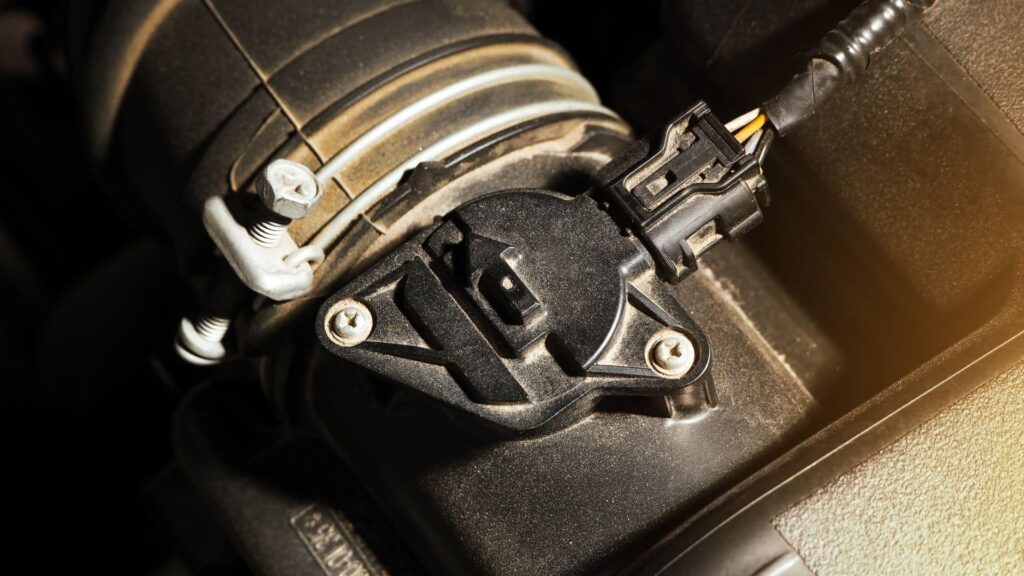Electronic systems in modern cars are very important because they constantly check, control, and improve performance. Sensors are very important to these systems. The “nervous system” of the car sends messages to the engine control unit (ECU), which changes things like fuel injection, spark timing, air intake, and emissions. It doesn’t matter how little a problem one of these sensors is; it can have big effects on your car’s performance, gas mileage, and general driving experience.
Role of Sensors in Modern Cars
Every modern car is equipped with dozens of sensors that communicate real-time data to ensure the engine and other systems function properly. These include the oxygen sensor, mass airflow sensor, throttle position sensor, crankshaft position sensor, and many others. Each one does a certain job and helps keep the balance between emissions, power, and the economy.
For instance, the oxygen sensor monitors the air-fuel ratio to ensure the engine burns fuel efficiently. If this sensor fails, the car might run too rich or too lean, causing rough idling, poor acceleration, or excessive emissions. Similarly, a malfunctioning mass airflow sensor can disrupt the engine’s air intake measurement, leading to performance problems and higher fuel consumption.
How Faulty Sensors Disrupt Engine Performance
A faulty sensor can create confusion for the car’s computer, leading to incorrect adjustments in fuel delivery, timing, or airflow. Drivers might notice symptoms like decreased acceleration, rough idling, stalling, or difficulty starting the vehicle. The check engine light is often the first indicator of such problems.
In luxury vehicles such as Rolls Royce models, precision is everything. A single sensor malfunction can throw off the balance of the engine’s advanced systems. If you suspect an issue, seeking professional help from experts who understand high-performance engines is essential. For instance, a specialized service provider familiar with premium vehicles, as seen at https://alleuropeanautorepair.com/las-vegas-rolls-royce-repair/, can diagnose and repair such issues accurately, ensuring that each component functions as intended.
Common Sensors That Commonly Fail
Several sensors are more prone to failure due to constant exposure to heat, vibration, and environmental contaminants. Some of the most common ones include:
- Oxygen Sensor: Controls the fuel blend; if it’s broken, it can make the car use more gas and put out more pollution.
- Mass Airflow Sensor: Measures air entering the engine; if it fails, the engine might hesitate or stall.
- Throttle Position Sensor: Affects acceleration and throttle response; failure can cause jerky movement or poor response.
- Coolant Temperature Sensor: Inaccurate readings can make the ECU inject too much or too little fuel, impacting performance and engine cooling.
Replacing these sensors promptly can restore balance and prevent further damage to the engine.
Why Ignoring a Faulty Sensor Can Be Costly
Ignoring a malfunctioning sensor can lead to cascading issues. The car’s ECU relies on accurate data to make split-second decisions. When it receives incorrect information, other systems compensate in ways that may strain the engine or transmission. Over time, this can lead to higher repair costs, reduced fuel economy, and even permanent damage to critical components like the catalytic converter.
Furthermore, performance degradation might not happen overnight. Drivers may slowly adapt to the car’s declining responsiveness without realizing the underlying cause. This is why periodic diagnostic checks are crucial, especially for European and luxury cars that use advanced sensor networks.
Professional Diagnosis and Repair
Fixing a faulty sensor isn’t about guessing which component to replace. Professional technicians use diagnostic tools that read fault codes directly from the car’s ECU, pinpointing the exact source of the problem. Experienced service centers, particularly those specializing in European models, have the expertise and equipment to interpret these codes accurately.
Timely sensor replacement and recalibration can restore your vehicle’s smooth performance, better fuel economy, and cleaner emissions. Whether you drive a luxury car or a standard model, maintaining your sensors ensures that the engine continues to perform as designed.
Final Thoughts
Sensors may be small, but their impact on your car’s health is massive. When one fails, the entire system feels the effect. From poor fuel economy to sluggish acceleration, these issues can quickly snowball into major repairs if ignored. The best approach is preventive maintenance and timely diagnostics from a qualified repair specialist. By addressing sensor problems early, you keep your vehicle efficient, responsive, and safe on the road.

